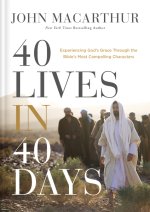‘Very Short’, in this brilliant OUP series, does not mean really short, or simple. Here Cline first provides a critical history of archaeology in the Holy Land, of techniques driven by political and personal agendas. Then he evaluates an eclectic range of archaeological findings – geological, site specific, antiquarian including Qumran - against a biblical chronology, from Noah’s flood to early Christianity. Two things emerge. One is that many ‘biblical’ archaeologists have been seeking reassurance – either ‘proof’ of the bible’s narrative ‘truth’, or justification of land ownership. The other is that things are really much more complex. Archaeology has not confirmed ancient events – such as the exodus from Egypt – but can touch on happenings set more recently. It indicates, for example, that Jerusalem was indeed destroyed and burned sometime near 586 BCE. It perhaps, therefore, supports readings of the Hebrew Bible as exilic and post-exilic texts, constructing a people’s past from mythic sources, rather than as an authoritative history. This is a fascinating, wide-ranging book.
Trustpilot








